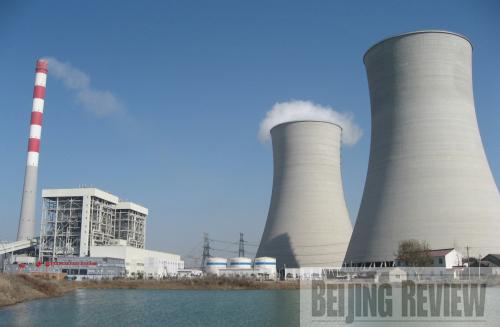|
 |
|
(XINHUA) |
Numbers of the Week
53.1 percent
The Purchasing Managers Index (PMI) of China, a barometer of the manufacturing sector, stood at 53.1 percent in May, 0.4 percentage points down from April, according to data from the China Federation of Logistics and Purchasing.
289.7 billion kwh
China's power generation totaled 289.7 billion kwh in May, down 3.54 percent from a year earlier, the State Grid Corp. of China said.
TO THE POINT: China raised its retail gasoline and diesel prices in response to surges in international crude oil prices. China Investment Corp. raised its stake in Morgan Stanley. China Eastern Airlines Corp. teamed up with Yunnan Province to reclaim its dominant position in the local market. The government provided details on its programs to replace autos and home appliances. The Shanghai A-share market hit a 10-month high, but with a muddy picture ahead.
By HU YUE
Spiking Fuel Prices
China responded to the recent rally in international crude oil prices by raising domestic retail gasoline and diesel prices by 400 yuan ($58.5) per ton respectively, effective June 1.
The decision, announced by the National Development and Reform Commission (NDRC), was the second price hike so far this year following a milder increase in March and a price cut in January.
But the news came as no surprise to economists, since the government had subtly left open the door for price adjustments in swift reaction to international market swings. Under the new pricing regime introduced earlier this year, domestic retail fuel prices can be reset when the moving average of international crude oil prices changes more than 4 percent over a period of 22 working days. By the end of May, a basket of international crude oil prices had exceeded $60 a barrel in a prolonged rally sparked by a weak U.S. dollar, expectations of world economic revival, and a resurgence in speculation.
The move is bound to provide profitability insurance to the country's major crude refiners in the face of margin squeeze, Liu Bo, an analyst with Sinolink Securities Co. Ltd., said in a report. Su Shulin, Chairman of China Petroleum and Chemical Corp., also cautioned last month that the pressure of refining losses is coming roaring back with crude oil prices above $60 per barrel.
Pang Changwei, an oil expert with China University of Petroleum, played down worries about its impact on economic recovery. The relatively modest price increase is unlikely to drain life from the economic turnaround that is taking hold in a number of sectors, he said in a statement.
CIC Buys Morgan Stanley Stock
While global investors continued to be wary of crisis-stricken Wall Street, China Investment Corp. (CIC) cast a vote of confidence in its revival.
The China sovereign wealth fund announced plans to buy $1.2 billion worth of common stock in Morgan Stanley Inc. to help the U.S. investment bank repay debt borrowed under the U.S. Treasury's Troubled Asset Relief Program. The scheme aims to help cleanse banks of the toxic assets that are blocking lending and worsening a deep recession.
The buyout would also bump up CIC's stake in Morgan Stanley back to approximately 9.86 percent. In December 2007, the company paid $5.6 billion for mandatory convertible securities in the financial group, representing a 9.86-percent stake. But the holding was diluted to 7.68 percent in October 2008 when Japan's Mitsubishi UFJ Financial Group Inc. bought into the U.S. bank as well.
Analysts say the new purchase at a market low is bound to reduce CIC's overall costs of investment in Morgan Stanley and prop up returns potential.
Morgan Stanley is widely expected to be able to leverage on its strengthened financial position and will be on the road to resuming its successful trajectory amid the dramatic restructuring of the international financial service industry, CIC said in the announcement.
| 